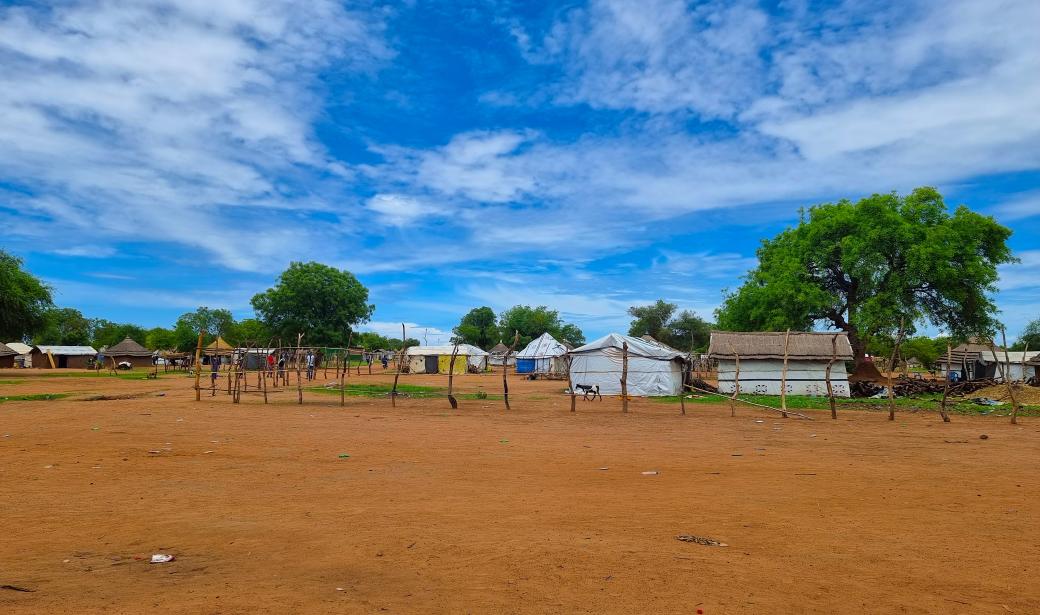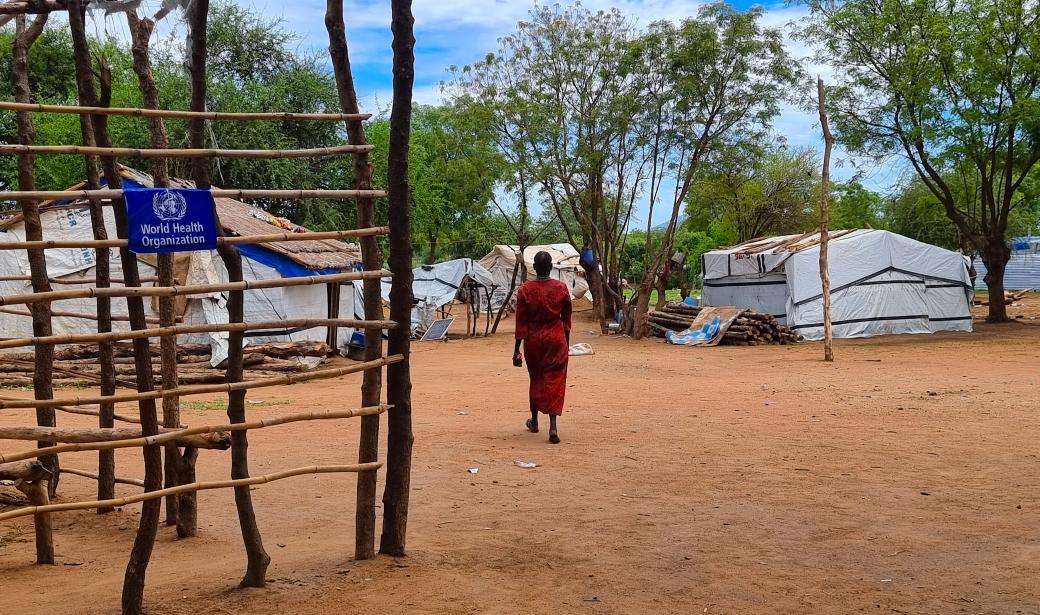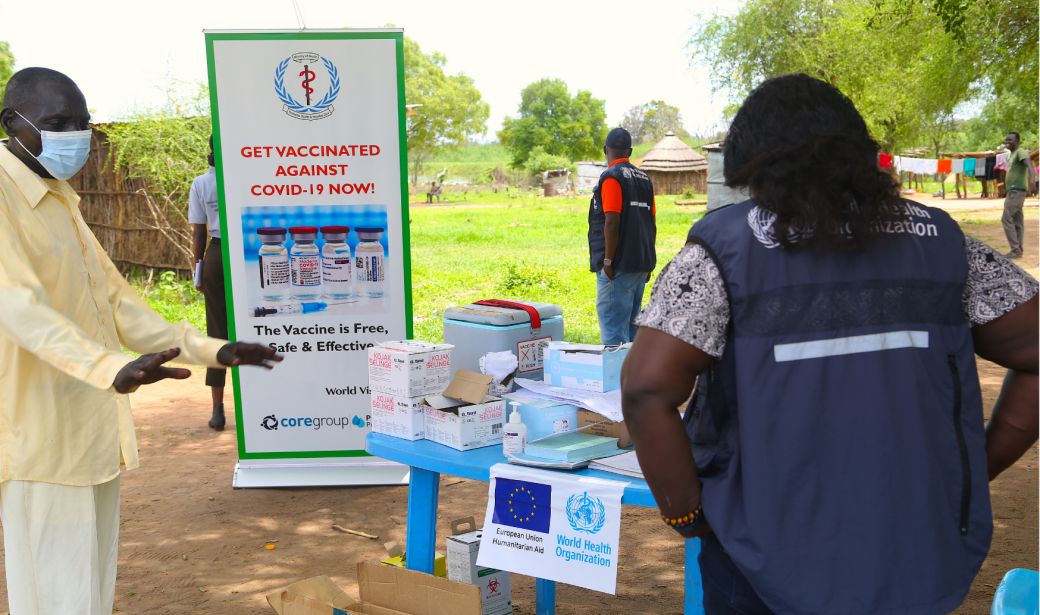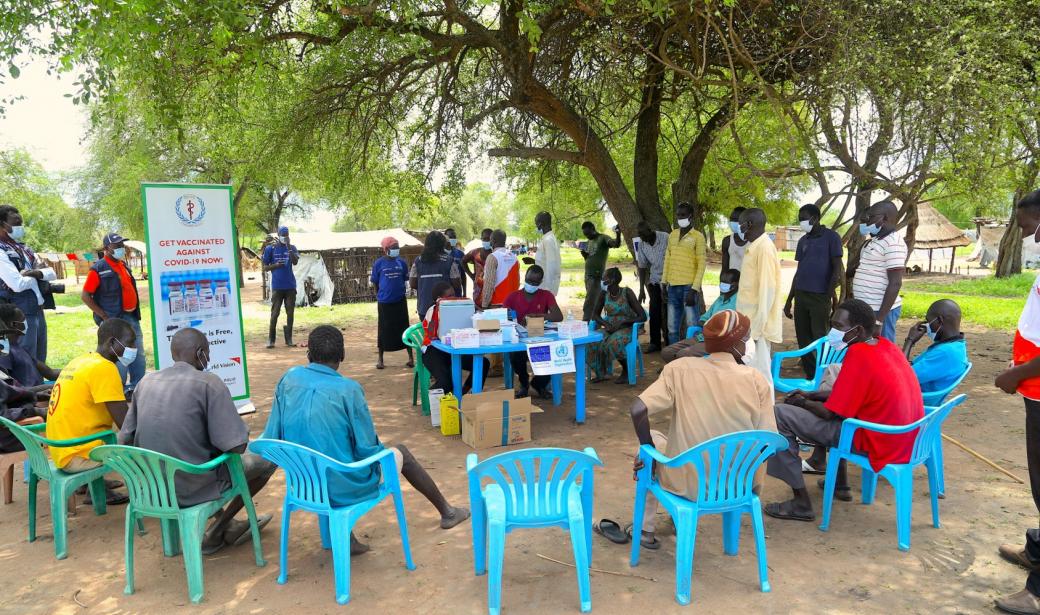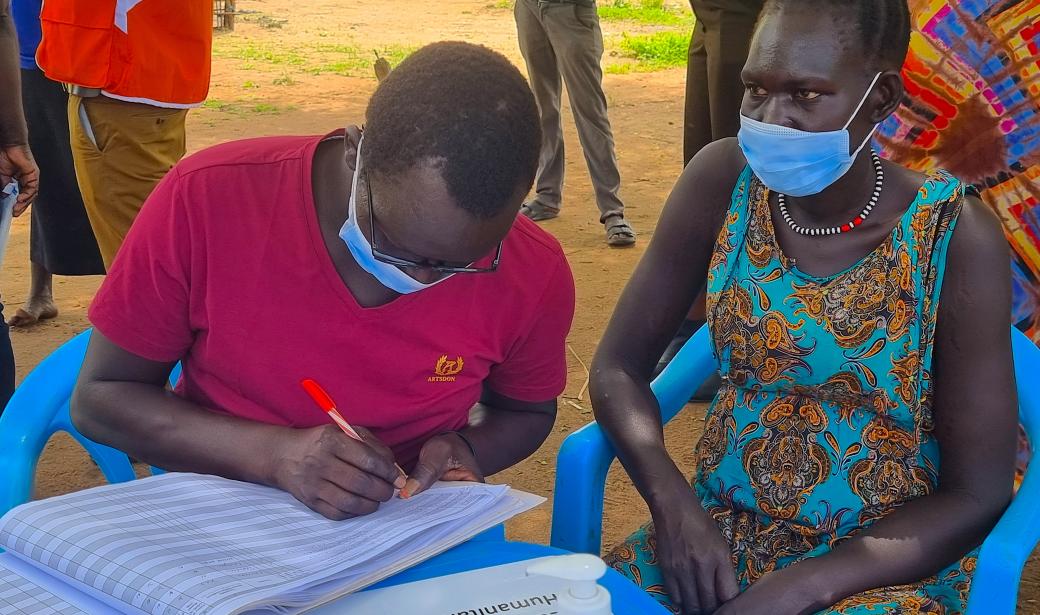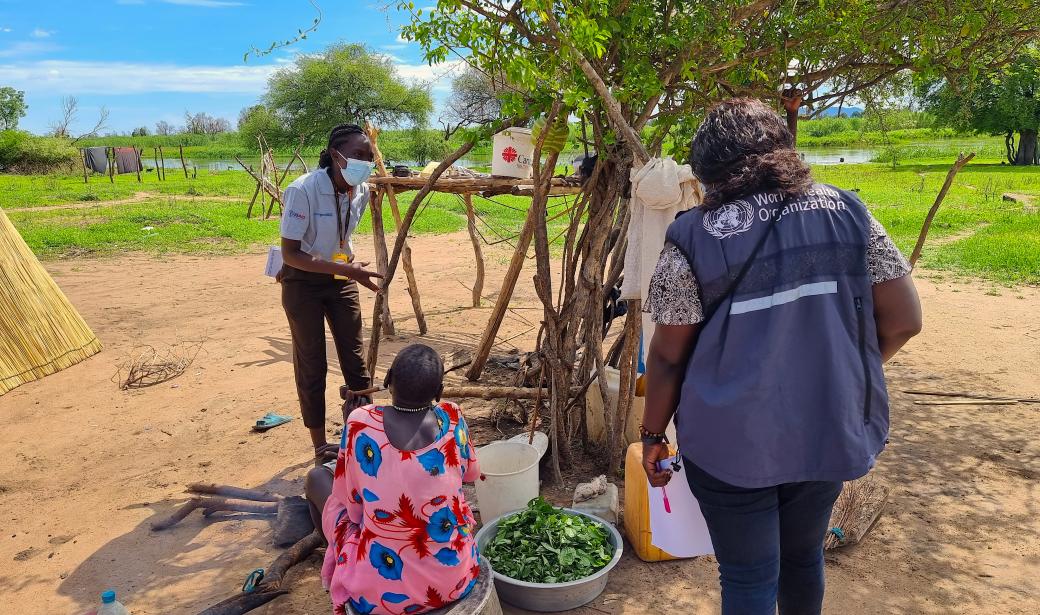Juba - Near the banks of the White Nile in South Sudan, residents of a settlement are among the latest recipients of COVID-19 vaccines, as efforts continue to take them to more locations in the country.
WHO / South Sudan
Lilian Hilary, 26, was among the new recipients of a COVID-19 vaccine at Mangalla settlement during African Vaccination Week, in the last week of April.
The mother of two says she had hoped to have been vaccinated earlier. “Today I am very happy that the services have been brought closer to our homes for women who cannot leave their children alone to also benefit from vaccines. We are happy that vaccines will now help protect us from getting sick from COVID-19.”
The mother of two says she had hoped to have been vaccinated earlier. “Today I am very happy that the services have been brought closer to our homes for women who cannot leave their children alone to also benefit from vaccines. We are happy that vaccines will now help protect us from getting sick from COVID-19.”
WHO / South Sudan
To support the vaccine drive, community leaders in the area such as Bornalia Kuajo Peter are helping to reassure residents that the vaccines are safe and rally people to take them.
“I am happy my people have received the vaccine,” says Peter, the deputy community leader. “The 50 people vaccinated in less than one hour today is clearly an indication that people in my community really are waiting for the vaccines and ready to receive them.”
As he watched people get vaccinated, he stressed the need for vaccines in the area, particularly for the elderly and vulnerable people. “We want the vaccination to stay with us a little bit longer. I want all my people to receive the vaccines,” he tells a gathering of people at the vaccination site. “I have taken one in front of you as assurance as your sub-chief that these vaccines are safe, especially for old people like us. In my area,most people are aged 50 and above so I urge you all to come and take the vaccine.”
“I am happy my people have received the vaccine,” says Peter, the deputy community leader. “The 50 people vaccinated in less than one hour today is clearly an indication that people in my community really are waiting for the vaccines and ready to receive them.”
As he watched people get vaccinated, he stressed the need for vaccines in the area, particularly for the elderly and vulnerable people. “We want the vaccination to stay with us a little bit longer. I want all my people to receive the vaccines,” he tells a gathering of people at the vaccination site. “I have taken one in front of you as assurance as your sub-chief that these vaccines are safe, especially for old people like us. In my area,most people are aged 50 and above so I urge you all to come and take the vaccine.”
WHO / South Sudan
The European Commission’s Directorate-General for European Civil Protection and Humanitarian Aid Operations (ECHO) is supporting efforts by the World Health Organization (WHO) and its partners to boost vaccine rollout in Africa.
Thanks to ECHO’s critical support, WHO is reaching the most vulnerable people in 15 African countries, including South Sudan, who are facing humanitarian situations such as drought, natural disasters and displacement.
Bringing COVID-19 vaccination to settlements like Mangalla spares residents from lengthy and costly cross-country trips.
Amid encouragement from leaders and some interaction with health care workers, residents trickle in to hear more about the benefits of the vaccine, to register and to be vaccinated.
Thanks to ECHO’s critical support, WHO is reaching the most vulnerable people in 15 African countries, including South Sudan, who are facing humanitarian situations such as drought, natural disasters and displacement.
Bringing COVID-19 vaccination to settlements like Mangalla spares residents from lengthy and costly cross-country trips.
Amid encouragement from leaders and some interaction with health care workers, residents trickle in to hear more about the benefits of the vaccine, to register and to be vaccinated.
WHO / South Sudan
Paul Pitia Alberto, 45, is a clinical nurse in Mangalla, and a team leader for the vaccination site. As he carefully prepares the shots to administer to residents, he describes the area as diverse and vulnerable to diseases. “Several communities live here after many were displaced by heavy rains, which forced them to relocate,” he says.
“People living in the settlement are very vulnerable to so many diseases which include malaria due to stagnant water, cholera due to open deification, and even worse to COVID-19 due to living conditions. If one person has COVID-19, chances of the whole family getting exposed to COVID-19 can be very high if people are not vaccinated.”
“People living in the settlement are very vulnerable to so many diseases which include malaria due to stagnant water, cholera due to open deification, and even worse to COVID-19 due to living conditions. If one person has COVID-19, chances of the whole family getting exposed to COVID-19 can be very high if people are not vaccinated.”
WHO / South Sudan
To ensure maximum reach, WHO staff in South Sudan will continue to facilitate vaccinations by reaching out to residents.
“We value our partnerships in South Sudan with people on the ground who deliver and administer health care. There is a great need here for access to COVID-19 vaccines. We are pleased to be able to bring vaccination closer to residents, many of whom were internally displaced and facing difficult living conditions,” says Dr Fabian Ndenzako, WHO Representative in South Sudan.
“The support by ECHO is making it possible to reach vulnerable populations and we look forward to working closely with our partners to administer COVID-19 vaccines in this region,” says Dr Ndenzako.
“We value our partnerships in South Sudan with people on the ground who deliver and administer health care. There is a great need here for access to COVID-19 vaccines. We are pleased to be able to bring vaccination closer to residents, many of whom were internally displaced and facing difficult living conditions,” says Dr Fabian Ndenzako, WHO Representative in South Sudan.
“The support by ECHO is making it possible to reach vulnerable populations and we look forward to working closely with our partners to administer COVID-19 vaccines in this region,” says Dr Ndenzako.
For Additional Information or to Request Interviews, Please contact:
Ms Jemila M. Ebrahim
Communications Officer
WHO Rwanda
Mobile: +250 795 450 856
Email: ebrahimj [at] who.int (ebrahimj[at]who[dot]int)
Bakano Otto
WHO Regional Office for Africa
Acting Regional Communications Manager
Email: ottob [at] who.int (ottob[at]who[dot]int)



